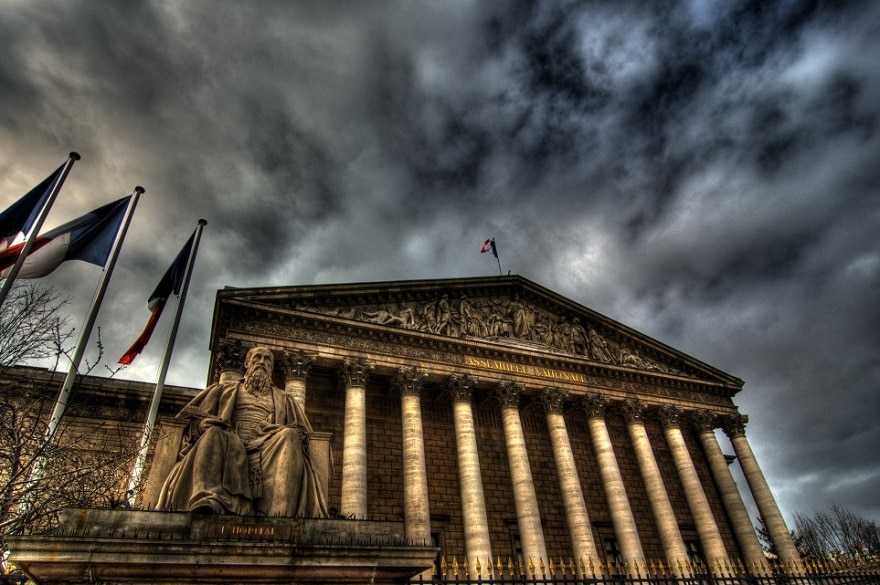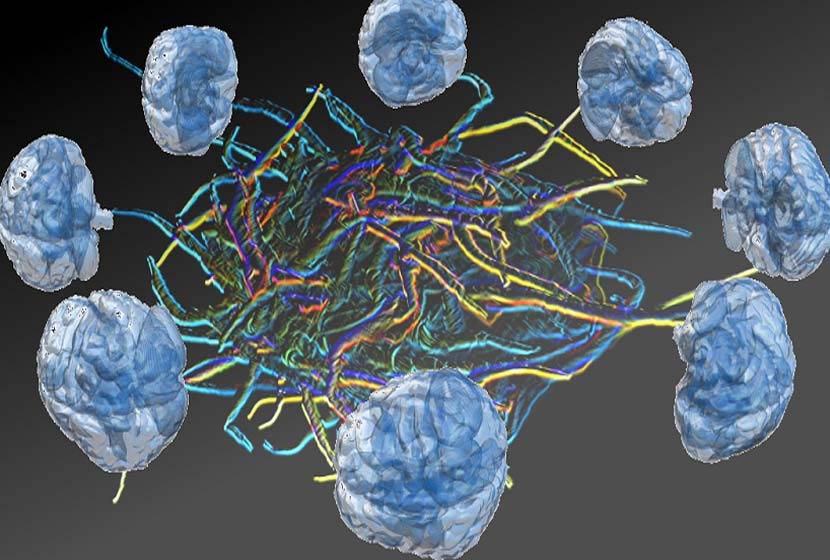Modern liberalism is not totalitarian but it is uncompromising; it provides a maximum program in which governments will choose what is most appropriate according to the conjunctural circumstances or the institutional context. It is thus highly functional since it provides a very wide repertoire of possible radical measures, adapted to the various circumstances. As such, it demonstrates its capacity to embrace all aspects of society and to function as a vehicle for a hegemonic vision of the world. It is in this logic that a relatively new term appears in the political lexicon: governance, which would be, par excellence, the "ideological tool for a minimum state policy". (1).
As a true concept, the concept of governance is often presented in a very general and abstract way as a solution to very heterogeneous problems ranging from development to underdevelopment, from the crisis of politics to that of international relations, from corporate life to humanitarian and ethical considerations. In the context of the loss of momentum of States, governance is presented as a driving force for social, political and economic regulation at the level of the local community as well as at the level of the planet; in short, it would be the miracle tool for rethinking the democratic foundations of our societies.
● Generally speaking, two types of definitions are attributed to the concept of governance: a restrictive definition referring to the idea of an institutional or administrative management model; a second definition referring to a regulatory system designed to make individuals or communities live together. In a restrictive sense that delimits political governance, the concept is generally accompanied by the epithet "good" which calls for the idea of governing without making a large deficit, without wasting public funds and without too much corruption. At the level of embassies and international institutions, the concept takes on a complementary dimension to the former. Governance consists of public authorities governing in a non-authoritarian manner, in consultation with organised groups such as trade unions, parties and, more generally, all the protagonists of the so-called 'civil' society. This introduces a certain idea of democracy, open to actors other than the usual protagonists. Governance then serves to designate a situation in which responsibility is no longer the sole responsibility of the government, of one type of state actor. It is extended to "all mediation and domination activities between actors with very diverse statuses and resources with a view to implementing effective and coherent policies. »(2) The stakes then mechanically go beyond the administrative limits and vertical organization of the State.
● It is interesting to note that the concept of governance as applied to the state was brought to the baptismal font of today's world by finance and more particularly by the World Bank in 1989, on the occasion of a report on sub-Saharan Africa. But it was in 1992 that the Bank defined governance, on the one hand, by the processes through which authority is exercised in the management of a country's economic and social resources, and, on the other hand, by the capacity of governments to design, formulate and execute policies and perform their functions.
In 1999 the Bank took a new step by introducing the idea of "governance indicators". Demonstrating with a logical pirouette that governance is a reality ... since it can be measured, the Bank sets out the criteria - objective because measurable - of the type of "ideal governance". (3) . We find in this conception of governance, the logic of the corporate governanceThis is the result of a new approach, applied to companies since the 1970s, which is essentially aimed at articulating the interests of shareholders and managers, improving transparency and developing the relationship between the company and its external environment. From the outset, corporate governance in this sense raises questions of a political nature, such as the separation of powers and the distinction between ownership and control.
It is therefore intellectually easy to transpose the meaning of the domain of business to that of politics: government being conceived as a management body, the State as a business, the citizen as a user or consumer, an element of "human capital". The whole living in contact with a blurred set of organizations, institutions and individuals forming 'civil society' and having to take into account the realities of the market, competition and the financial interests of donors. In this conception, soft laws or norms -privileged by market actors- are preferred to hard laws, jurisdictions, usually practiced by States.
 ● This shift from corporate governance to state governance is not a caricature or a literary simplification. Indeed, the concept of governance endorses the privatization of political decision-making to the benefit of economic and social actors; it continues the work of modern liberalism to reduce the perimeter of the State and transform its government into a matter of management and technical administration.
● This shift from corporate governance to state governance is not a caricature or a literary simplification. Indeed, the concept of governance endorses the privatization of political decision-making to the benefit of economic and social actors; it continues the work of modern liberalism to reduce the perimeter of the State and transform its government into a matter of management and technical administration.
In this privatization of political decision-making, more and more functions that were formerly assigned to the state are being delegated to civil society or the market. This raises real questions about the limits of state sovereignty.
● Yet, paradoxically, governance also symbolizes the renewal of politics, that of the passage from a vertical governmentality based on representation to a horizontal governmentality articulated on participatory and transversal logics. This ambivalence, which some may consider a beautiful utopia, is however based on a logical argument. Indeed, the aim of governance is to define coherent modes of management in a context where societies are becoming increasingly ungovernable according to traditional procedures. Faced with the fragmentation of the territory, the strength of networks of all kinds, the rise of individualism, the extreme globalization of problems and their regionalization, the mode of government management must be redefined. Governance, in particular by allowing the articulation between public and private actors, between the protagonists of the triad State/civil society/market, would be a model for the management of common affairs and the shared exercise of responsibility. In this logic, public action takes into account the multiplicity of actors and abandons the vertical sense of a power imposed from above.
● When this conception of governance is transposed to the international level, it becomes "global governance" and has a direct impact on the modes of relations between States, particularly through classical international law. (4). This conception breaks with the idea of a single world order or a world government that some people dream or nightmare about. This may be a temporary break, but the current conception of global governance acknowledges the differentiation of actors and the more or less legitimate mechanisms of regulation that shape the contemporary world: states, multinational companies, diasporas, solidarity networks, international organizations, etc. This is a temporary break, but it is still the case that the current conception of global governance takes note of the differentiation of actors and the more or less legitimate mechanisms of regulation that shape the contemporary world: states, multinational companies, diasporas, solidarity networks, international organizations, etc. It is a break with the idea of a single world order or a global government, which some people dream about or nightmare about.
James N. Rosenau, Professor at Cambridge, explains that to reason in terms of "global governance" is to adopt a research posture that bets on the possibility of cooperative actions at the international level that take into account divergent interests and conflicting rationalities. (5).
However, a closer look at the concept reveals the shaping of market interests. The notion of global governance is indeed a means of envisaging new forms of social and legal norm-setting designed to fill the gap that currently exists between classical international law - the exclusive prerogative of states - and a transnational law constructed by private operators for the smooth running of business and respect for competition.
(1) Marie-Claude SMOUTS, Du bon usage de la gouvernance en relations internationales, in Revue internationale des sciences sociales, UNESCO, No. 155, March 1998.
(2) Bernard JOUVE, Globalisation and environmental policies: the case of the Kyoto Protocol, in espaceTemps.net, May 2004.
(3) Three hundred criteria are thus defined by three Bank economists, joined by experts from the World Economic Forum in Davos, the Wall Street Journal and the Heritage Foundation. The mission of this Foundation is described on its website (heritage.org): "to formulate and promote conservative public policies based on the principles of free enterprise and state restraint, individual liberty, traditional American values, and strong national defense. "Governance indicators are grouped into six broad categories: power and accountability, political instability and violence, government effectiveness, regulatory burden, rule of law and anti-corruption. These indicators are used by the Bank in its lending allocations to complement its Country Policy and Institutional Assessment (CPIA) political rating system. The CPIA includes four categories (Economic Management, Structural Policies, Social Policies, Institutions, and Public Service Management) that are used to assess the "political performance" of debtor countries. Cf: Thibault LE TEXIER, Gouvernances, in rinoceros.org, December 2004.
(4) Cf. Bertrand BADIE & Marie-Claude SMOUTS
(5) See: James N. Rosenau & Ernt-Otto Czempiel, Governance without Government: Order and Change in World Politics, Cambridge, Cambridge University Press, 1992.












